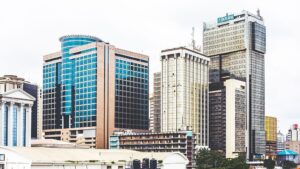Building collapse continues to be a major challenge to sustainable development in Nigeria, with devastating consequences. According to recent reports, Nigeria has lost properties worth $3.2 trillion to building collapse in the last two decades.
The country has recorded over 180 reported cases of building collapse in the last 50 years, with the most recent being the collapse of a 21-story building in Ikoyi, Lagos, which claimed over 40 lives. Despite the efforts of the government and other stakeholders, the spate of building collapse in Nigeria has continued to rise, with at least three more cases recorded in other parts of Lagos just six months after the Ikoyi incident.
Building collapse is a multifaceted issue that stems from various factors such as soil incompatibility, substandard building materials, infiltration of quacks, negligence of building codes and laws, disregard for the urban development plan, and poor enforcement of industry regulations.
The consequences of building collapse are dire and far-reaching, as it affects not only the occupants of the affected buildings but also the economy and the overall development of the country. The loss of $3.2 trillion worth of property to building collapse in Nigeria underscores the gravity of the situation and the urgent need for a sustainable solution.
Following the recent collapse on Ibadan Street in the Ebute-Metta area of Lagos, the state government has banned building structures above three floors within the Ebute-Metta East and West parts of the state. While the ban may be a step in the right direction, it raises concerns about the supply of housing units in the affected areas, as landlords may take advantage of the situation to increase rent values. Additionally, the ban may lead to a loss of confidence in the strength and condition of existing housing stock, thereby further straining the already overburdened housing units.
Despite the negative effects of the ban, it presents an opportunity for developers to uphold high development standards in line with industry regulations. This could positively affect the Yaba real estate market, as more developers tilt towards meeting the required standards for sustainable and safe buildings. The government also needs to strengthen its enforcement of building codes and laws to ensure that buildings are constructed to meet the required standards.
In conclusion, building collapse remains a significant challenge to sustainable development in Nigeria. The loss of $3.2 trillion worth of property to building collapse in the last two decades underscores the gravity of the situation and the urgent need for sustainable solutions. The government and other stakeholders must work together to address the underlying factors responsible for building collapse and enforce building codes and regulations to ensure the construction of safe and sustainable buildings.




